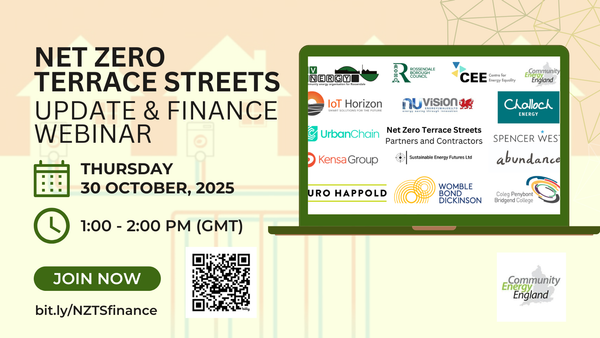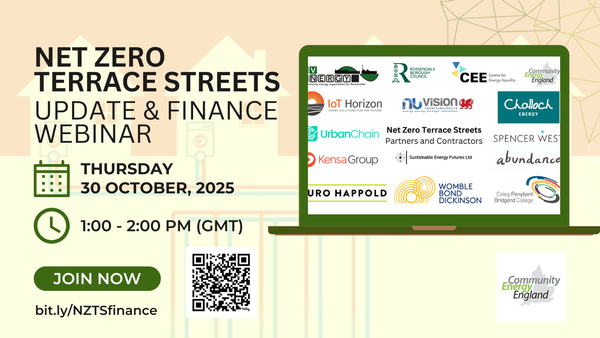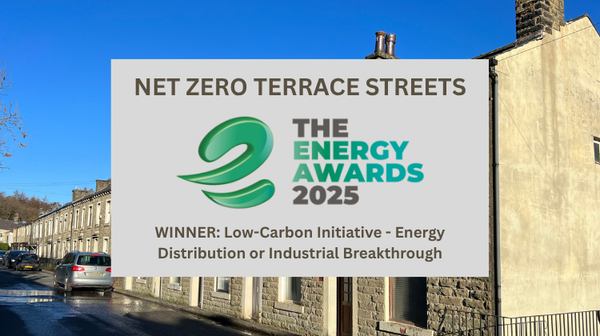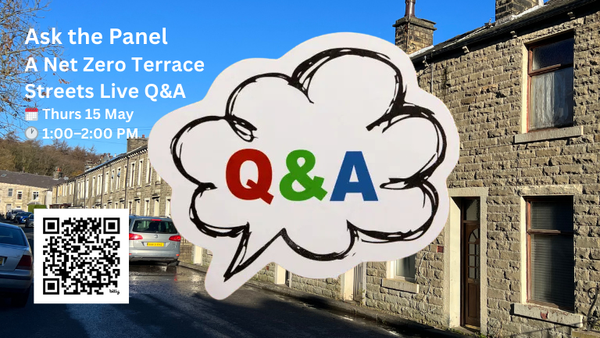Unlocking Community Energy at Scale: NZTS’s Louise Marix Evans Gives Evidence to Parliament

On 12 March 2025, Louise Marix Evans, Strategic Director of Net Zero Terrace Streets (NZTS) at Rossendale Valley Energy, gave evidence to the Energy Security and Net Zero (ESNZ) Select Committee on how the UK can unlock community energy at scale.
Speaking alongside representatives from Community Energy Scotland, Energy4All, and Communities for Renewables, Louise contributed insights from the NZTS initiative — a place-based approach to decarbonising older terraced housing while ensuring energy remains affordable.
You can watch the full session here and read our written evidence (PDF), submitted by Rossendale Valley Energy.
Key Points from the Written Evidence
Our written submission made the case for long-term, joined-up support for community-led energy systems:
“The Local Power Plan could significantly enhance and build upon the successes and challenges of existing community energy support schemes like the Community Energy Fund (CEF) by addressing several key areas:Ensuring Continuity, Accountability and Long-Term Focus of FundingSupporting Whole-Systems ThinkingEmphasising Community Ownership”
“By building upon the foundations of the CEF and addressing its shortcomings, the Local Power Plan could catalyse a new wave of community energy projects that are integrated, equitable, and sustainable. This approach would empower local actors while aligning with the UK's broader decarbonisation and energy security goals. Funding must adopt a whole-system, community-by-community approach, addressing generation, heat, storage, smart systems, and demand-side flexibility collectively.”
Our evidence also stressed the importance of supporting local energy markets:
“Local energy markets represent a transformative opportunity to enable communities to optimise generation, unlock flexibility revenues, and reduce reliance on centralised infrastructure. The Local Power Plan could facilitate these efforts by supporting innovative models such as green power pools, Energy Local, and consumer-focused initiatives like Ripple and the Octopus Fan Club. These examples demonstrate how local trading systems and smart energy solutions can incentivise participation and help reduce local and national grid constraints.”
“To fully realise the benefits of local energy markets, a whole-system approach is needed. This must integrate generation, demand-side flexibility, storage and heat solutions while prioritising local engagement and aligning policy with the specific needs of communities.”
We also highlighted critical regulatory and planning barriers:
“Community energy projects face significant barriers due to the high costs and long delays associated with securing grid connections. Regulatory reforms are necessary to address these challenges and support the growth of localised energy generation that can enhance community resilience, especially in rural areas.”
“Recognising the local benefits of community energy projects in planning decisions is essential for advancing decarbonisation, community resilience, and systemic energy reform. This recognition should include factors such as demand-side flexibility, local energy generation, and heat network integration, which are crucial for meeting net-zero targets.”
Finally, our submission pointed to the unique role of NZTS and similar models:
“Community energy, through models like NZTS, has the potential to incentivize demand-side flexibility at scale, democratising access and aligning local actions with the UK’s net zero targets. By adopting a holistic approach, leveraging digital tools, and engaging communities effectively, these initiatives can unlock significant flexibility while driving economic and social benefits.”
You can read the full written evidence here (PDF).
To learn more about the NZTS project, explore the rest of nzts.info and watch our webinar recordings and short explainer videos at bit.ly/NZTSvids.




